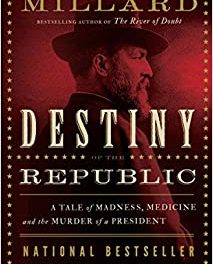Hey there Otterites!
For this Martin Monday I think I’m going to jump on Robert’s philosophy wagon a bit and take a quick run at a philosophy topic.
As you Otterites may know, Bjorn, my youngest, is currently matriculating at Bellarmine, the place that brought Snakes & Otters together. Ol’ Martin here is extremely proud that he’s following in our footsteps in attending BU (pronounced Boo by the youngsters these days). He’s a very science minded young man and convincing him of the long-term value of liberal arts continues to be a regular discussion. Still, he likes to discuss the philosophy and theology classes he’s taken so far. This past semester was Ethics, and I can tell you he’s been filling my ears with talk of Rousseau, Kant, Aquinas and the like. And like anyone his age I’d bet, he’s a bit disappointed in all of them. All of these figures seem somewhat remote, and it can be difficult to shoehorn their thinking into our virtual reality, go-go, Tik Tok, all-Kardashian all-the time world. Snakes & Otters of course can take the long view and realize there’s value to analyzing all this thinking and these systems, and then synthesize a coherent world view. That can take a little too long for the short attention span generation. I’ll cut them a break though, they do have to move on to the next class.
I asked Bjorn who he liked and disliked from studying these ethical systems, and he danced on the pin a bit until admitting he probably disliked John Locke the least. Now I’ve not studied Locke in some time, so had to do a little quick research to work through what Bjorn appreciated. Although Locke had a very conservative Christian theological background, his philosophy turned out to be more rooted in real world experience. So much so that his ideas came to be known as empiricism. Empiricism stresses that knowledge is gained from our experiences and how we perceive them. Science then becomes the disciplines we know today, in that any observation is to be controlled and repeatable, and anything is subject to being disproved and there are no absolutes, or as we know them today, “settled science”.
I think I see what attracts Bjorn to old Locke now, as he inherited my empiricist tendencies. If you have listened to a few of the code of honor and philosophy episodes, you can hear the emphasis on the knowledge we can gain from our senses and perceptions in my influences, things such as “don’t immanentize the eschaton”. Locke called for governmental separation of powers, that the Church and State be independent of one another, and that individuals had natural rights. Of course that should sound fairly familiar. That’s right, Locke had a profound effect on Voltaire and on those great American patriots of the founding generation, especially Jefferson.
Locke was also forward thinking when it comes to economics, embracing what would become supply and demand theory. He’d also come to embrace religious tolerance as a necessary adjunct to the separation of Church and State. In other words, all sorts of things we’re supposed to be all about these days.
Otterites, I think this calls for a serious Snakes & Otters investigation into Locke’s life and thinking. I’ll have to discuss getting it on the schedule with Francis and Robert. He sounds right up my alley. Course I already have a bursting book shelf to read or I’d run right out and pick up a bio. I’m sure there’s a good one about. But Lenin and Wilson, the Templars, Samuel Colt, Gouverneur Morris, James Garfield and WWI got in there before him. And I still haven’t picked up a bio on Alfred the Great yet… In the meantime, how about a Voltaire episode?
Image public domain of painting by Godfrey Kneller





